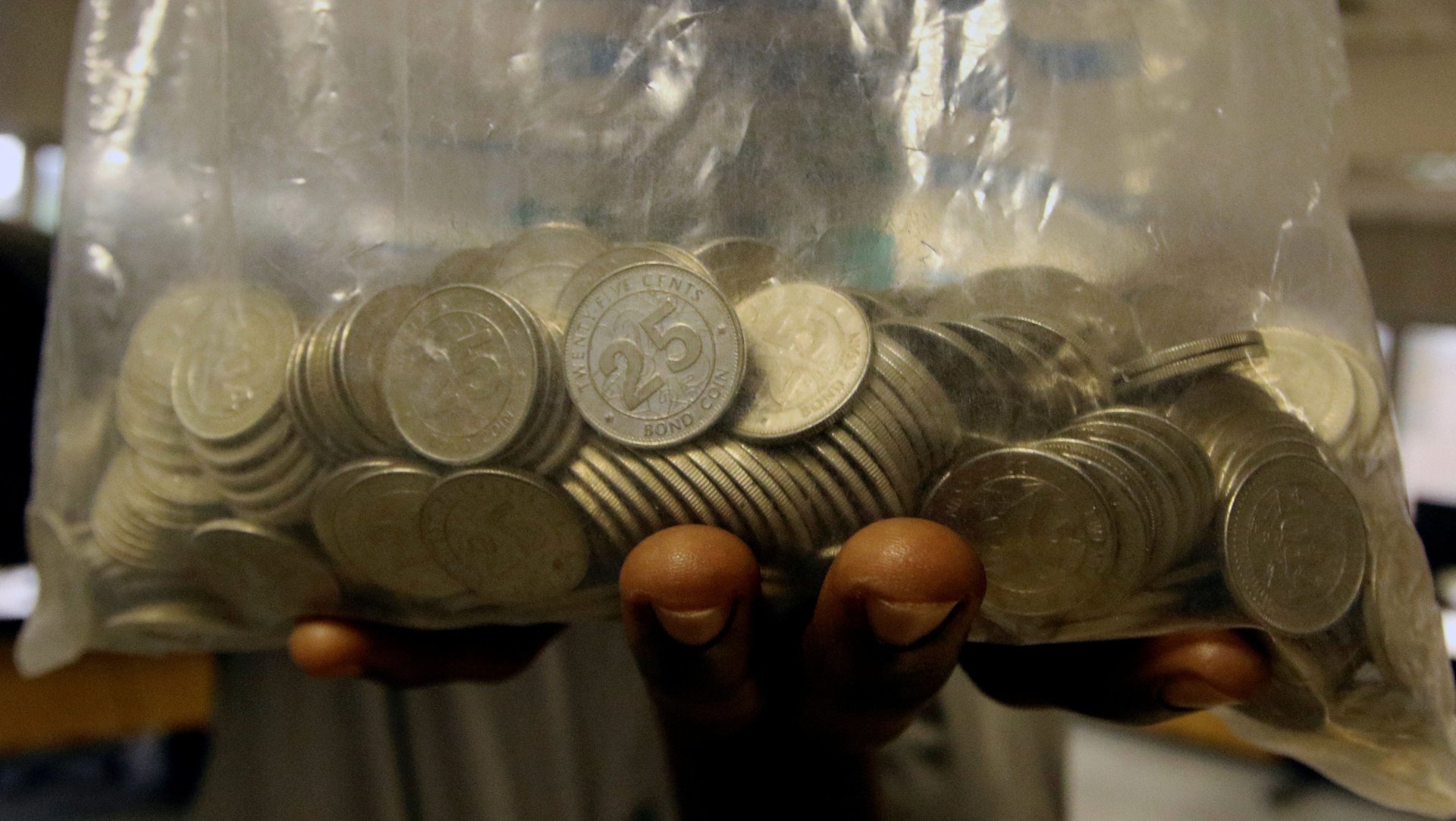Regulators have blown up bitcoin trade in Africa’s most active crypto currency market
Harare, Zimbabwe


Harare, Zimbabwe
Tech savvy Zimbabweans have long used bitcoin and other cryptocurrencies to plug foreign currency and liquidity gaps plaguing the country, so much so that the southern African country has become one of Africa’s most active markets for crypto transactions. But that hedging strategy has suffered a major setback after the Zimbabwean central bank ordered finance houses to stop processing virtual currency payments and gave then a two-month ultimatum to put this into effect.
The announcement has thrown the country’s leading crypto currency exchange platform, Golix, into disarray. It has halted its planned token sale to raise $32 million under an initial coin offering (ICO) aimed at generating funds to expand across Africa.
The Reserve Bank of Zimbabwe, which is battling to plug foreign currency shortages as foreign shareholders fail to remit dividends back home, says bitcoin trade is risky and could have destabilizing effects on the financial system. This is in stark contrast to the central bank’s call for the adoption of digital payment platforms as one of the measures to curtail the debilitating effects of foreign currency shortages inflicted by low productivity and a shortage of foreign direct investment inflows.
Constitutional and law expert, Advocate Fadzai Mahere, said on Tuesday that the “legality of the ban is doubtful”. This comes as other crypto currency exchange platforms and bitcoin traders in India, which has also banned banks from processing virtual currency payments, are dragging the Reserve Bank of India to the courts. It is largely expected that traders and exchange platforms in Zimbabwe will take this route as they scramble for answers and to save a digital trade that had started to garner public interest.
“The ban appears not to be based on any law or regulation, not to mention that it seems not to be reasonable, proportionate or fair,” Mahere said on Twitter.
The blanket ban by the reserve bank of Zimbabwe has left traders and those who used bitcoin for various payments in a tailspin. Bitcoin was now being used for airline payments, software payments, and pre-owned vehicle purchases from Japan and for sending forex out of the country. Many are hoping that the central bank, which has been accused of printing more local notes and coins to buy forex from parallel markets, will back down from its position.
Bitcoin was so crucial to the transactions for business people in Zimbabwe that due to the illiquidity of the market, the value of bitcoin reached record highs about six months to year ago, with a nominal value higher than in more developed markets.
As traders and investors in crypto currency look for a way round ban, Golix is engaged with regulators with a view to convince them it adheres to “know your customer” and due diligence tenets. The exchange platform has explained to bitcoin traders in Zimbabwe that they will “will not be able to send or receive fiat currencies for crypto currency trades because of the ban.